

A more piquant question might be this: Do you remember Oscar Levant at all? Good Night, Oscar, the new biographical dramedy by Doug Wright, seems at once intimately familiar with and entirely alien to its subject. Making its Broadway debut at the Belasco Theatre after a run at Chicago’s Goodman Theatre last year, it feels designed for the Levant superfan (are you out there?) and the novice alike. In doing so, it treats its subject with reverence and a cool distance all at once.
The play’s action takes place more or less in real time, as Levant prepares to appear as the marquee guest on the first West Coast broadcast of The Tonight Show. Here’s the rub: In order to satisfy host Jack Paar’s desire to book him, Levant has been temporarily sprung from a residential treatment facility, where his wife June has had him involuntarily committed. He arrives at NBC Studios in Burbank with a disgruntled orderly, Alvin Finney, in tow, much to the chagrin of network president Bob Sarnoff.
In setting up this scenario, Wright’s script often sounds like a Wikipedia entry divided up into dialogue. The characters rehash the familiar peccadilloes of Levant’s life, from his impoverished upbringing in Pittsburgh, to his unfulfilled career as a concert pianist and composer, to the ever-widening swell of his neurosis. Wright doesn’t mine these topics for depth; he merely presents them. The average playgoer will leave the production knowing a lot about Levant’s backstory and little about the man himself.
In his public, Levant hid behind quips to deflect his bone-deep anguish. He employs the rationale of many a tortured soul: “I say it about myself before they can! I make ‘em laugh, but I have the last one.” Wright’s Levant says a lot—he is the voluble center of attention, always with a one-liner at the ready—but he shies away from the private anguish beneath the court jester’s persona. In turn, we see Levant as television audiences did sixty years ago: as virtuosic but empty. The play barely scratches the surface of Levant’s very thin skin.
Good Night, Oscar was devised as a star vehicle for Sean Hayes, who, in addition to being an Emmy-winning and Tony-nominated actor, is also a classically trained pianist. He approximates every tick and vocal mannerism familiar to Levant—the slack posture and slightly slumped head, the subtly slurring speech pattern—but his performance rarely rises above the level of mimicry.
Even when he sits down at the Steinway to perform the solo line from Rhapsody in Blue, he doesn’t render Levant’s lyrical gifts or sense of wild abandon within the world of music. His pianism and his performance are competent, never transcendent.
The supporting performances largely fall into familiar tropes: Peter Grosz becomes the personification of a bulging neck vein as the perennially perturbed Sarnoff, while Ben Rappaport is an almost catatonically cool Paar. The usually wonderful Emily Bergl is a tad arch as Mrs. Levant, though Wright deserves some blame for indulging in long-suffering wife stereotypes.
lex Wyse is annoyingly animated as Max, a young P.A. who mostly serves the purpose of feeding facts about Levant’s life to the audience. Only Marchánt Davis charts a compelling character arc as Finney, who seems to be the only person concerned with maintaining the stability of Levant’s tenuous recovery.
The production, directed by Lisa Peterson, also features periodic hallucinations of George Gershwin, Levant’s closest friend and chief rival. It’s a hoary device that functions more to introduce Hayes’s turn at the piano than offer any real insight on Levant’s psyche. John Zdrojeski cuts a dashing figure in Emilio Sosa’s period costumes—across the board, the staging’s most successful element—but he bears very little resemblance to the actual historical figure. Wright often deploys him as a lazy afterthought.
In the end, Good Night, Oscar feels like a missed opportunity, both to introduce a new audience to a fascinating midcentury public figure and to portray frankly the struggles of mental illness and drug addiction. Unfortunately, it takes the path of least resistance, turning what could have been a stirring concerto into a cheap player-piano tune.
Photos: Joan Marcus


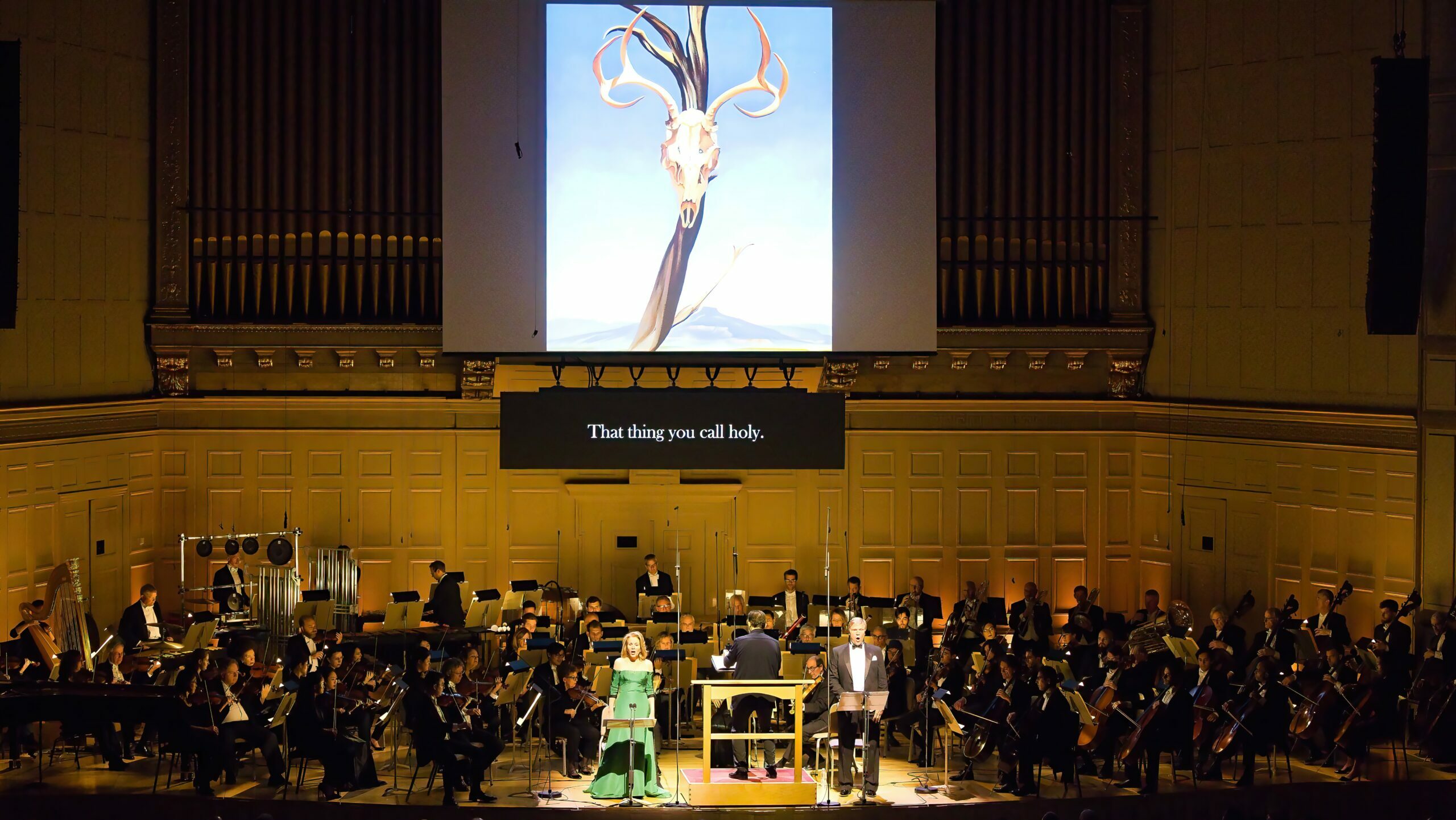
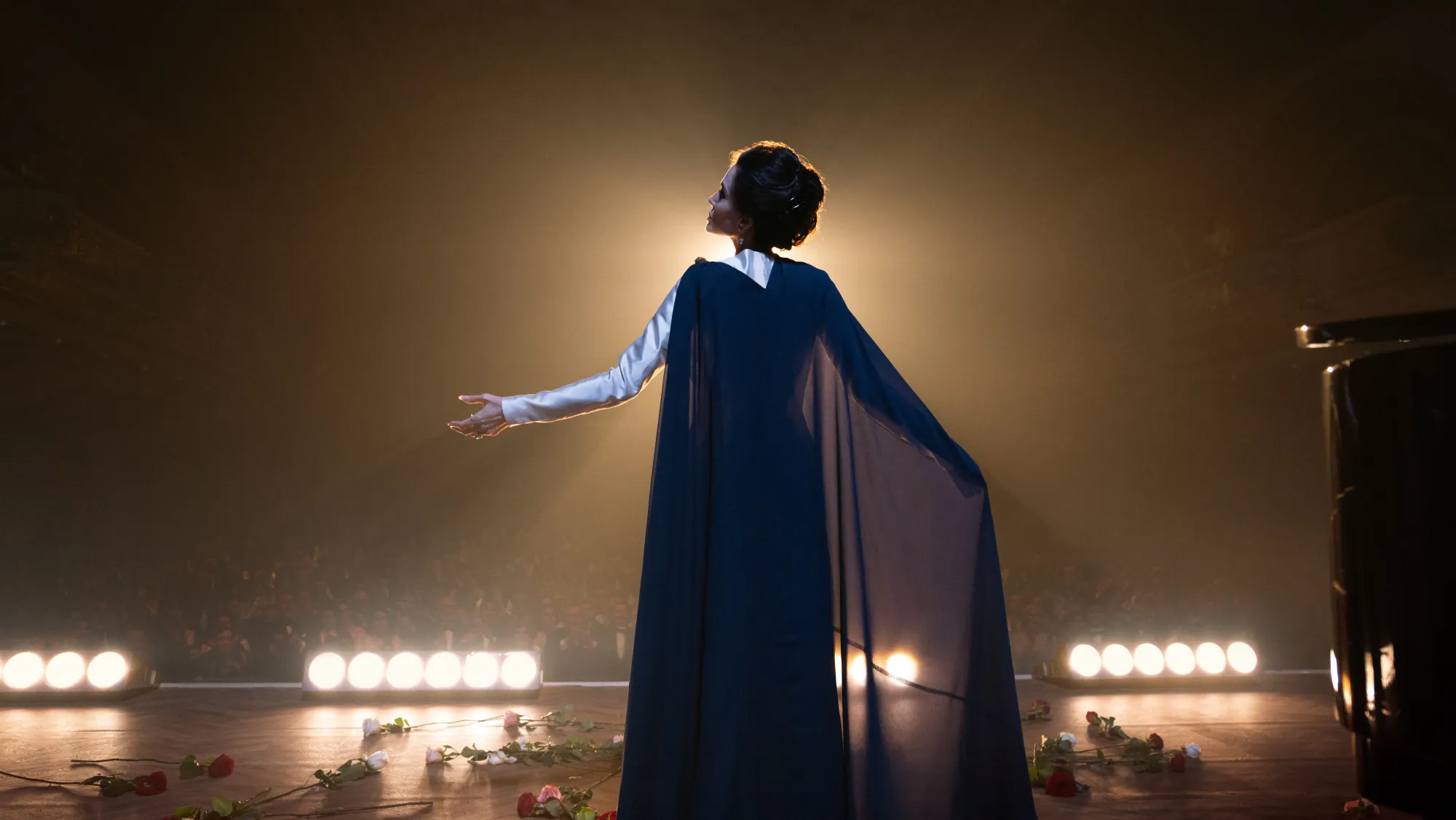


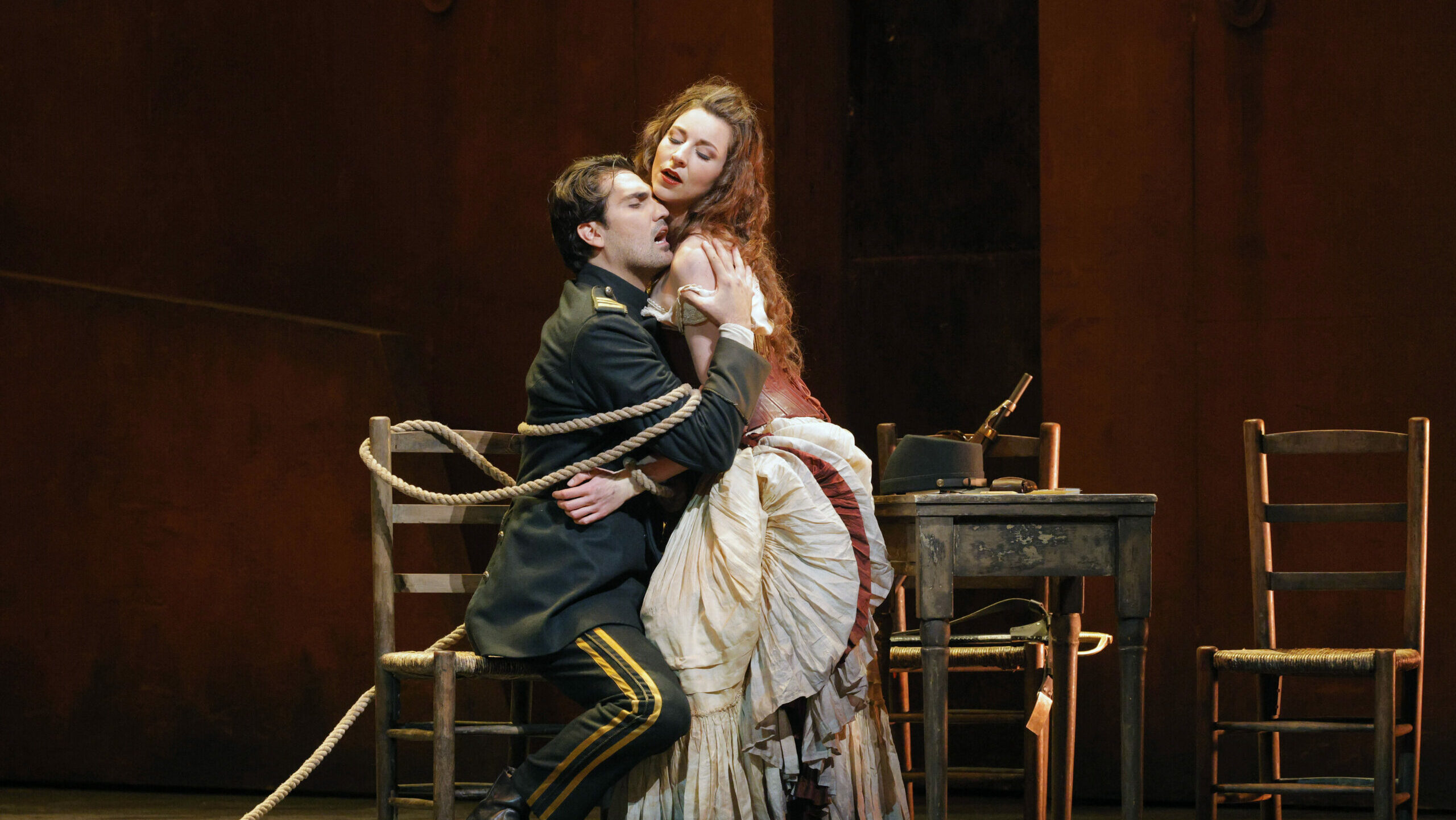


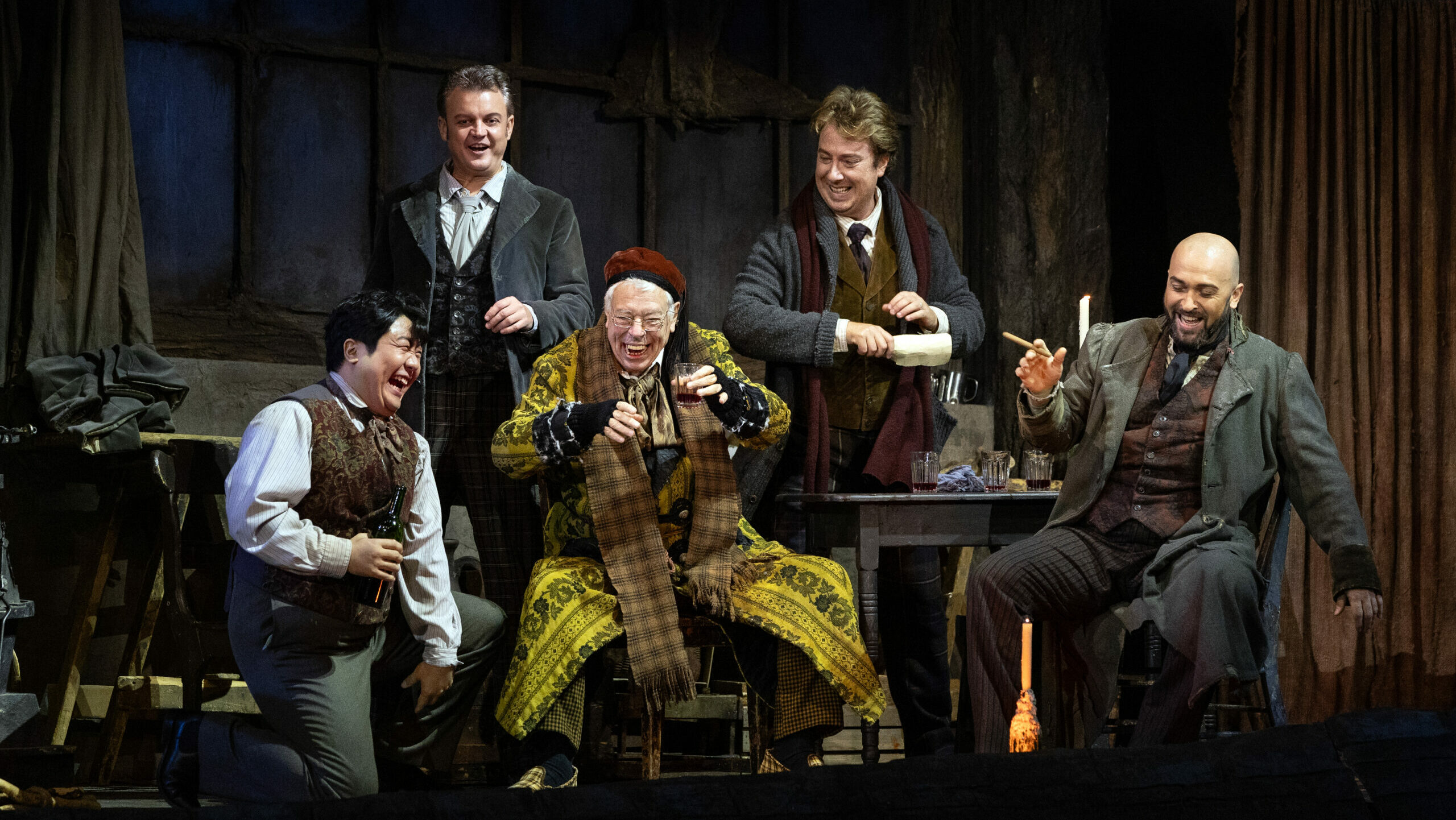

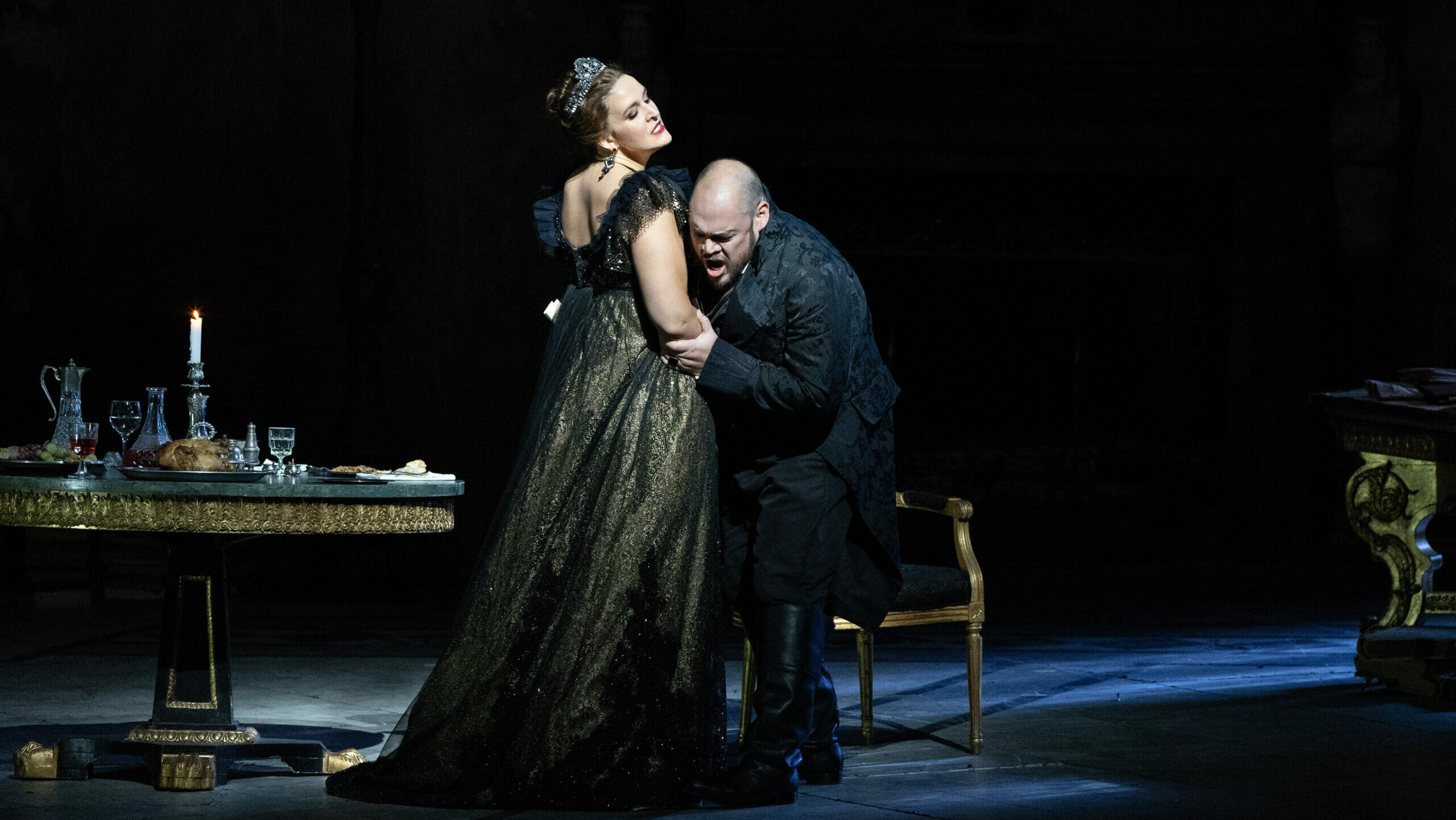


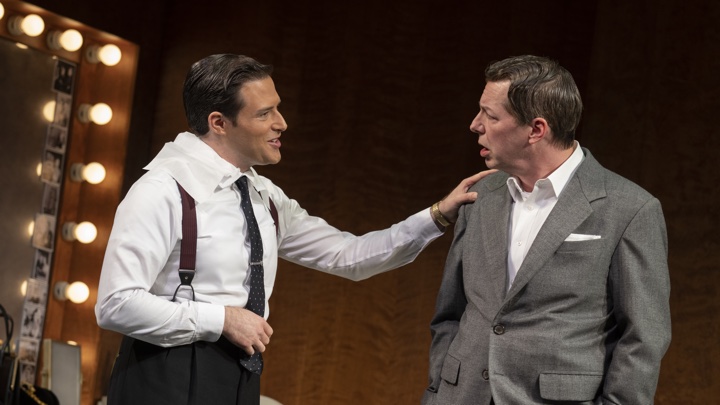













Comments